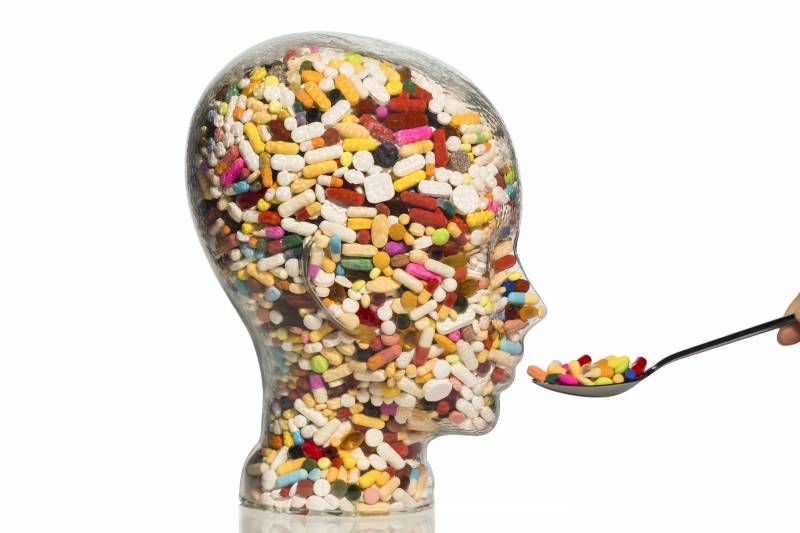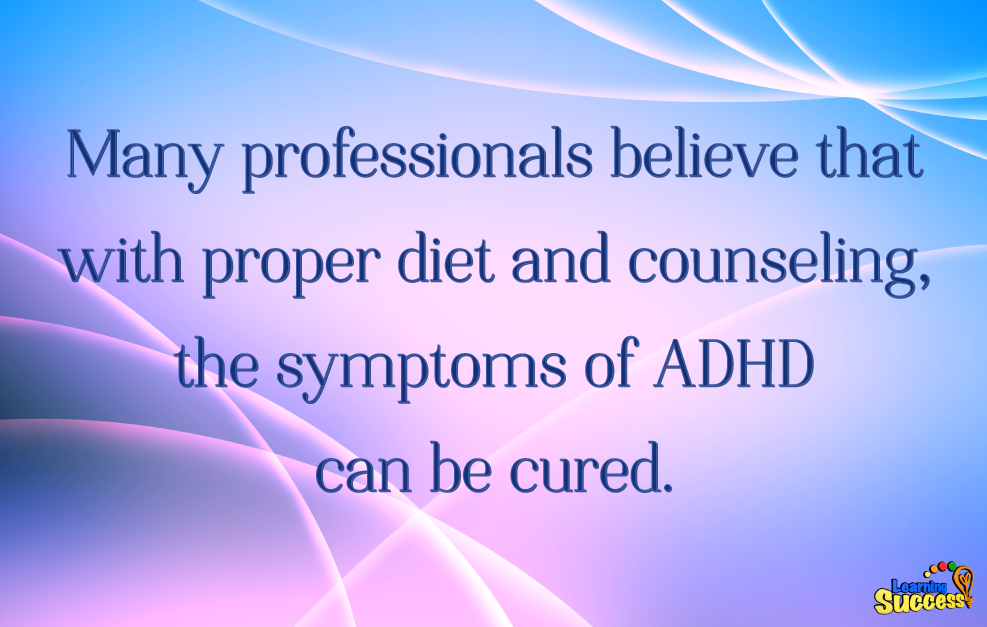
We know very little about the cause of ADHD, and it has very many layers of symptoms and diagnoses. Is it possible that we don't need so many children on medication for it? Or could symptoms be curbed with diet and counseling?
A label, not a diagnosis?
ADHD is a newer disease, first defined in the Diagnostic and Statistical Manual of Mental Disorders (DSM-IV) in 1994. This means that we still may have a lot to learn about what it is, and the best ways to treat it.
According to an article by Marilyn Wedge, Ph.D, some scientists believe that the hyperactivity and inattentive behaviors that classify the disease have been in effect for longer than the disease has had a name.
However, others believe that the diagnosis serves only to provide a label for children who act out and misbehave. In fact, Wedge suggests that drugs may often cover up the underlying true cause of the behaviors.

ADHD may have more than one cause -- and treatment.
Wedge's article cites evidence from Bruce Perry, a trauma specialist based out of Houston. In his studies, Perry noticed that childrens' brain functions are influenced by both biology and environmental factors — particularly social factors.
For some with ADHD, it's possible to find a chemical imbalance that truly is causing the disorder. In cases like that, prescription drugs are the only measures that can help.
But when it's environmental or social, Perry believes non-pharmaceutical therapies could be more beneficial for children with the disease than commonly prescribed medication.
ADHD has many components and theories as to the cause
Wedge also notes that some children diagnosed wth ADHD were only labeled because of explainable behavior. For example, children with stressed parents who don't spend enough time with them will act out in ways that could be diagnosed as ADHD.
Children in these situations would benefit from non-pharmacological methods to treating hyperactivity, including counseling the parents to reduce the amount of stress in the home. Reducing stress on the parents has been shown to have a positive effect on the children's own attitudes and behaviors.
Key Takeaways:
Is your child struggling with ADHD, and you want to try non-pharmacological methods to improve their learning ability? Learning Success System can help -- take our assessment by clicking here!
<p>To get a free cookbook full of ADHD safe recipes and lots of nourishing brain healthy recipe ideas just <a href="https://www.learningsuccesssystem.com/get-cookbook-free">click here</a>.</p>
Do You Need help with a Learning Difficulty?
Our simple online analysis will help you get to the core of the problem and find the right solution for you.
Understanding how to help someone with a learning difficulty starts with understanding which micro-skills are affected. When you learn which of the micro-skills is the problem, you will then be on your way to solving it.
You'll also learn how to:
- Build confidence
- Enhance Learning ability
- Eliminate avoidance
- Build grit
You can get this analysis for free by filling out this simple form. This will help you get to the bottom of a learning difficulty and provide you with a solution. If you are ready to put this problem behind you click the button below and fill out the form.










